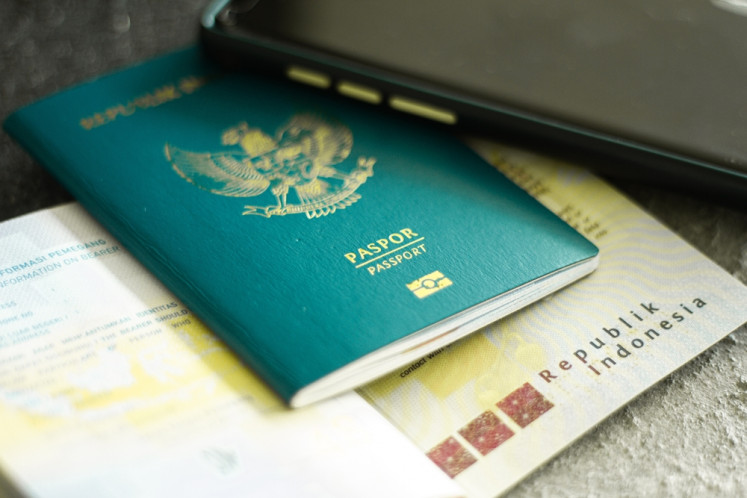Myanmar protesters mark 1962 rallies against first junta
Change Size

P
rotesters hit the streets across Myanmar on Wednesday to mark the anniversary of 1962 student protests against the country's first junta, vowing defiance against its latest incarnation more than five months after it seized power.
Myanmar has been in turmoil since the generals ousted Aung San Suu Kyi's government in February, with pro-democracy protests met by a brutal military crackdown that has killed more than 880, according to a local monitoring group.
The economy is in freefall with thousands of civil servants and doctors on strike and coronavirus cases in the impoverished country spiking.
Around one hundred protesters moved quickly through the commercial capital Yangon early Wednesday, AFP reporters said, to mark the 1962 Yangon university protests against the first imposition of military rule in Myanmar.
Hundreds were killed by troops and thousands disappeared in a brutal crackdown many see being repeated almost seven decades later.
"Let's root out the fascist army," they chanted, as some let off smoke bombs in orange and blue.
"Keep the spirit of July 7 and fight the military dictatorship."
Two minutes later they had gone — scattering quickly down side streets or jumping into waiting cars — informants have tipped off police to previous flashmobs and protesters have been arrested.
Dozens also gathered in the second city of Mandalay holding signs and in the central Sagaing region, protesters burned an army flag, images on local media showed.
Myanmar has been ruled almost continually by the military since 1962, just over a decade since independence from Britain.
It emerged from outright military rule in 2011, enacting economic and political reforms, including multiparty elections.
Suy Kyi's National League for Democracy won a thumping majority in elections in 2015 and again in 2020, relegating the main military-backed party to the opposition.
Protests that drew hundreds of thousands onto the streets in February and March have given way to more nimble rallies in the face of a brutal crackdown that has seen security forces use semiautomatic weapons on protesters.
The junta has justified its power seizure as a means to protect democracy, alleging electoral fraud in November elections which Suu Kyi's party won in a landslide.
Human rights catastrophe
The United Nations rights chief warned on Tuesday that the dire situation in Myanmar since its February coup was driving the country towards possible civil war and could spark regional insecurity.
Speaking before the UN Human Rights Council, Michelle Bachelet lamented that Myanmar in recent months "has evolved from a political crisis to a multidimensional human rights catastrophe".
"Suffering and violence throughout the country are devastating prospects for sustainable development and raise the possibility of state failure or a broader civil war," she said.
In addition, she cautioned, "the catastrophic developments in Myanmar since the coup [...] are generating clear potential for massive insecurity, with fallout for the wider region."
Myanmar has experienced mass protests and a brutal military response since the February 1 coup which ousted civilian leader Aung San Suu Kyi.
"What began as a coup by the Myanmar military has rapidly morphed into an attack against the civilian population that has become increasingly widespread and systematic," the UN High Commissioner for Human Rights said.
Since the coup, nearly 900 people have been killed, while about 200,000 have been forced to flee their homes, she said.
At the same time, at least 5,200 people had been arbitrarily arrested, including more than 90 journalists, according to UN numbers, while eight major media outlets had been forced to close.
Bachelet also pointed to multiple reports of "enforced disappearances, brutal torture and deaths in custody", as well as arrests of relatives and even the children of people sought by the authorities.
"Despair is rising," she warned, pointing out that people across the country had now taken up arms and formed self-protection groups.
"These newly formed armed opposition groups have launched attacks in several locations, to which the security forces have responded with disproportionate force," she said.
"I am concerned that this escalation in violence could have horrific consequences for civilians."
The former Chilean president called on "all armed actors" to respect and protect civilians and civilian structures like health centers and schools.
In the past five months there had been at least 240 attacks on health care facilities and personnel, she said, which had among other things "seriously disabled COVID-19 testing, treatment and vaccination."
It was vital, she insisted, for the international community to "stand united in pressuring the military to halt its continuing attacks on the people of Myanmar and return the country to democracy."









